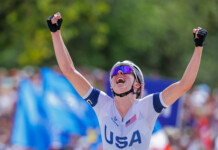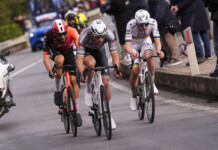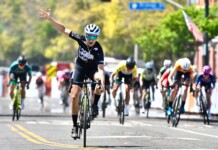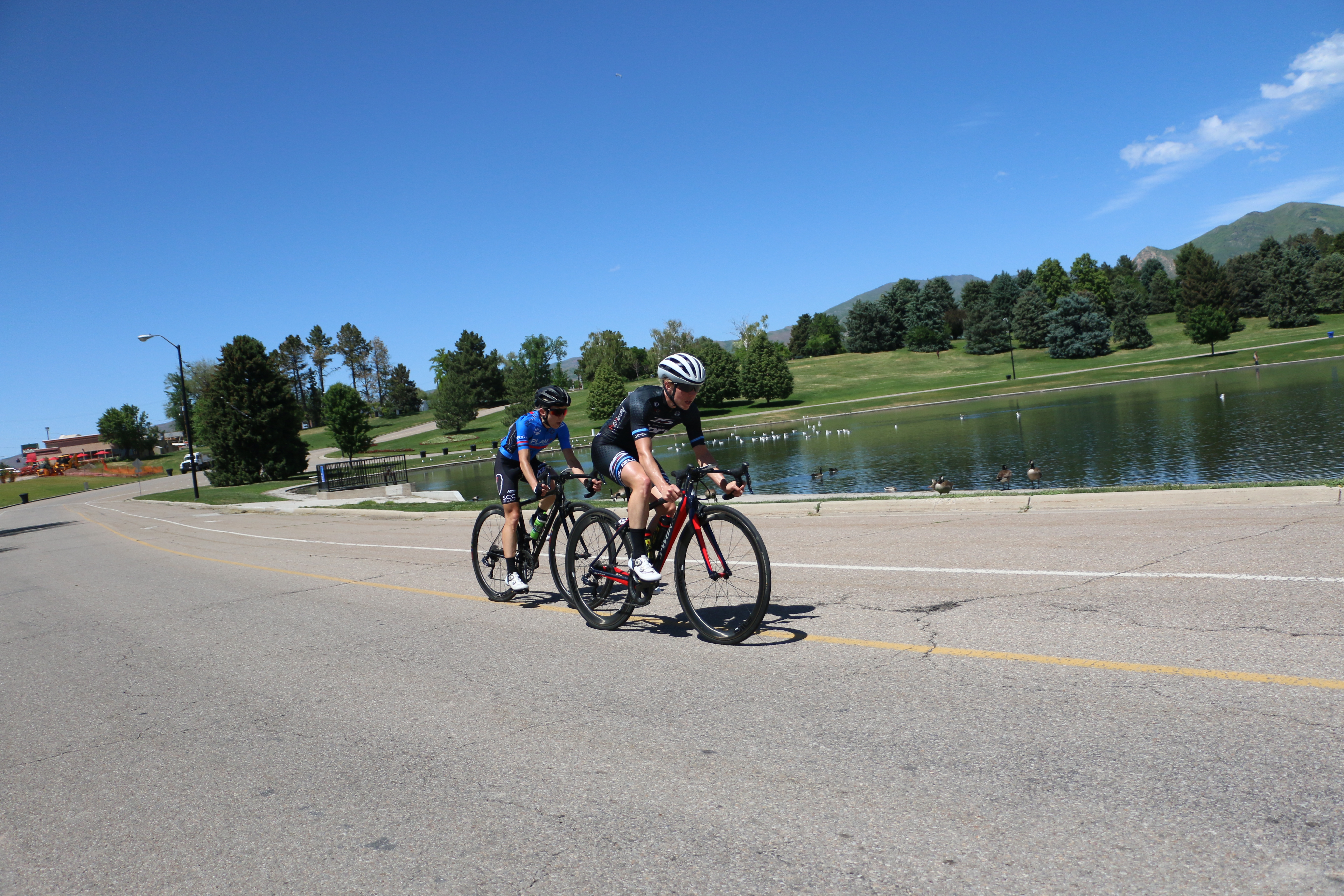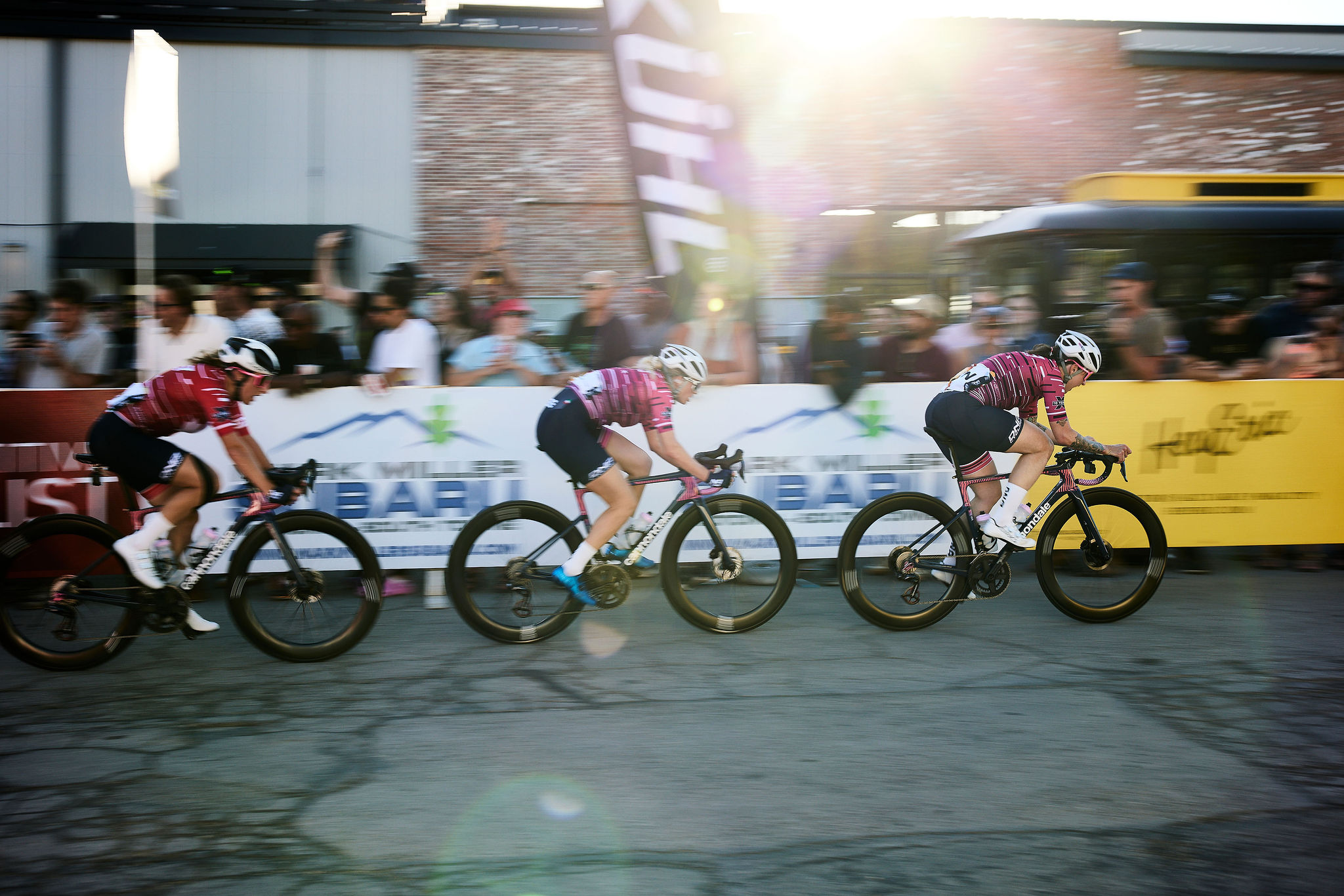By Greg Overton
The soap opera whose story line swirls around whether Lance Armstrong used performance enhancing drugs during his seven Tour de France winning career has hit the world stage again. This time it’s bigger, with more storylines, a larger cast including friends, teammates, sports federations, governments, shattered careers, lost businesses, stories of intimidation and deceit, and one thing for sure, someone is lying. The question is ‘who?’. Another might be ‘who cares, can’t we move on?’ Apparently the FDA does, in addition to those linked to the saga who have lost careers and businesses. Those being accused of wrong doing want to move forward and those who claim to have been damaged want redemption. Go figure.
In September 2010, it was announced that a Federal investigation was being conducted into the possibility of athlete doping on the United States Postal Service Professional Bicycling Team. The investigation is being conducted by FDA agent Jeff Novitsky in conjunction with a whistleblower suit filed by Floyd Landis on behalf of the US government. The investigation is based on the possibility that payments made to the team by USPS, and arguably public funds, were made under fraudulent conditions. Reportedly the terms of the team’s approximately $40 million dollar sponsorship deal with USPS from the years 1999 to 2004 included agreements related to the team holding to a strict no doping policy: a stipulation reportedly included because of accusations against the sport of cycling and not any particular rider on the team initially. If the team is found guilty of using money from the USPS to obtain performance enhancing drugs (PED’s) the implications might include conspiracy, racketeering, wire fraud, drug trafficking, money laundering and defrauding the US government. Armstrong was the leader and figurehead of the team, its most successful rider and its most public. Since his return to racing in 1998 after overcoming testicular cancer, he was the subject of doping accusations and scrutiny, all the while vehemently maintaining his innocence and his clean record of no positive tests for performance enhancing drugs.
It’s been mostly Armstrong’s word against whoever the accuser of the day may have been. Typically, the accusers were reporters who were leaked, or were under the impression that they had been leaked a scoop of a positive test here or something in the trash there to implicate Armstrong. But there were also accusations from people who were close to the team and its riders. Some were on the team and were instrumental in helping Armstrong build his fantastic Tour career. That list is growing, as the Novitsky investigation hands out Federal Grand Jury subpoenas to now include some of Armstrong’s closest friends and most trusted allies, some being admitted cheats in their own riding careers. While it is the team that is under investigation, it is clearly Armstrong who stands as the central figure and also stands to lose the most. Personally, financially, publicly, commercially and perhaps even in regards to his charitable foundation all aspects of his life risk being affected negatively if this case goes against him and the team. He has built an empire based upon his persona, and that persona must now be defended, but up to this point it was mainly in the court of public opinion. Now it appears that it might need to be defended in a court of law. Novitsky has called several former teammates and others to testify, but has yet to call Armstrong, and it’s unclear whether he will, seemingly he is building the case against the team as a whole and against its star as well. Reportedly those who have testified so far are telling similar stories about life on the team and with its star. And if those reports are true, it does not bode well for either.
Some background on the accusations that have dogged Armstrong throughout his career, and even prior to the USPS sponsorship:
Stephen Swart, Armstrong’s teammate on the Motorola (previous sponsor to USPS) team told Sports Illustrated magazine that Armstrong suggested the riders start taking EPO in order to improve results as early as 1995. “He was the instigator. It was his words that pushed us toward doing it. It was his advice, his discussions.” Swart’s accusations were quoted in two books and one London newspaper, alleging that it was Armstrong who had pushed the team’s riders to dope. Armstrong sued the authors of one of the books, L.A. Confidentiel, in France. He also sued one of the author’s employers, the London Sunday Times. The first suit in France was dismissed, and he dropped the other. The Times settled out of court.
In 1999, while Armstrong was on his way to his first Tour victory and riding for the US Postal team, he was quoted in a race press conference on July 19, a rest day on the Tour, during which he said he never took corticosteroids and that he did not have a prescription for any banned substances. But a French newspaper, operating on a tip that Armstrong had tested positive for a corticosteroid but had no therapeutic use exemption on his medical form, said that the rider had tested positive for banned testosterone. According to Emma O’Reilly, a soigneur who worked with the team and specifically with Armstrong, when the team heard that the newspaper had received the tip, Armstrong and team leaders panicked. She told Sports Illustrated that she was in a team hotel room after the 15th Tour stage when Armstrong and team officials “agreed to backdate a medical prescription, they’d gotten a heads up that the steroid count was high and decided they would actually do a backdated prescription and pretend it was something for saddle sores.”
While those allegations created a whirlwind of speculation at the time, no one else from the US Postal team had betrayed Armstrong or the team. That changed in a 2005 arbitration hearing between Armstrong and SCA Promotions over the payment of a reported $5M bonus he was due for winning the Tour. SCA had refused to pay the bonus based upon the doping allegations against Armstrong, who testified in the arbitration hearings that he had never doped. Former teammate Frankie Andreu and his wife Betsy were called to testify, and according to Betsy in a VeloNation interview, the Andreus testified under oath that they were in a hospital room with Lance in 1996 when he listed for his oncologist the PED’s that he had used in training and racing, that Armstrong admitted to medical staff during the time the Andreus were in the hospital room that he had used EPO, growth hormone, testosterone and other drugs. Armstrong claimed that his former teammate had an axe to grind and was lying in order to damage Armstrong and that the discussion never happened. Andreu had been a rider, teammate and friend of Armstrong’s on the US Postal team and has said that he believes his contract with the team was not renewed when he refused an Armstrong request that he meet with Dr. Michele Ferrari, the Italian physician who reportedly gave the team doping protocols. (Ferrari has been banned from sport by the Italian cycling governing body for doping athletes). According to Andreu in the VeloNation interview, a representative from team sponsor Oakley Eyewear, Stephanie McIlvain was also in the room, and testified under oath that she never heard the admission by Armstrong. Armstrong won the arbitration and received the payment plus an additional $2.5 million in interest and penalties. Again according to Andreu in the VeloNation interview, McIlvain has contradicted her testimony in the arbitration hearing during later conversations and voicemails with Greg LeMond and the Andreus, and that those voicemails and recorded conversations have been supplied to Novitsky’s investigation.
This incident is further muddied by a statement made in the Los Angeles Times by Armstrong’s PR manager Mark Fabiani, “Lance was required to undergo an active steroid and EPO regimen as part of his post-operative treatment, which may give a reasonable explanation for their having been some discussion of EPO or steroids…having nothing to do with any suggestion of use before he was a cancer patient.”
Betsy Andreu questioned this statement, commenting in the VeloNation interview, “I have a few questions regarding this. Fabiani is stating that I misunderstood the doctors and the discussions that took place. In saying discussions did take place, is he then admitting that Lance lied under oath at the SCA case, when Lance said no doctors were ever present, no such discussions ever took place? Because this is a complete and clear contradiction. But what is interesting is that this has now been pulled out of the LA Times’ original article. But it has already been picked up by other publications, so how are they going to squirm out of this one? Is Fabiani admitting that Lance lied under oath when he says that there were discussions? And, if what Fabiani is saying is true, then there should be medical records, right? Well, how come according to everybody, the medical records show that this never happened, when Fabiani is saying ‘basically, it did, he was just misunderstood’?”
Armstrong retired in 2005, after a record breaking seventh Tour de France victory and at the height of his popularity, both with the cycling community and as an inspiration to cancer patients around the world. But the allegations would continue to surface. The French sports publication l’Equipe published a story claiming that anti-doping samples belonging to Armstrong from the ’99 Tour had tested positive for EPO. The UCI contracted Emile Vrijman, an independent investigator who issued an official report exonerating Armstrong because of questionable handling of the urine samples. Reportedly there was no twin A and B sample as mandated under anti-doping regulations. The matter was officially dropped, but the speculation continued.
In 2002, the year Dr. Ferrari was suspended from working with cyclists, writer David Walsh speculated on the relationship between Armstrong and the doctor, that their relationship had begun in the mid nineties and that given Ferrari’s ties to doping, Armstrong was suspect. Armstrong defended the doctor and claimed there was no doping going on. After Ferrari was convicted in Italy of fraud and malpractice in 2004 on charges related to doping, Armstrong said that he had ended their working relationship. But a 60 Minutes feature aired on May 21, 2011, that included former USPS rider Tyler Hamilton and Frankie Andreu states that Armstrong and his representatives were still paying Ferrari as late as 2010. Ferrari was linked to widespread doping in sport, not only cycling, and eventually was banned from working with athletes. The relationship between Armstrong and Ferrari is a major factor in Armstrong’s long running feud with three time Tour winner Greg LeMond. Early in Armstrong’s career, it’s reported that a conversation between the two friends occurred in which LeMond urged Armstrong to distance himself from Ferrari because of the doctor’s links to and reputation for doping athletes. LeMond advised Armstrong that even if there was no doping involved, the association would create problems that Armstrong would regret in regard to his career and reputation. It was the beginning of the end of their friendship and ultimately became a factor in the breakup between LeMond’s bike company and its distributor Trek, which was US Postal’s most visible sponsor. LeMond has remained outspoken against doping in cycling and of his suspicions of Armstrong’s claims of his own cleanliness.
This brings us to the next high profile accuser, and the initiator of the FDA’s suit, Floyd Landis. Landis was a teammate on Armstrong’s USPS teams, and after being hired away to head the Phonak team, won the 2006 Tour de France. But after a positive test for testosterone, Landis was stripped of his Tour title and eventually admitted to using PED’s. Along with his admission came allegations against the team, including Armstrong. Landis told the Wall Street Journal in a July 2010, interview that team director Johan Bruyneel told him that the team sold some sponsor equipment to finance doping. In e-mails from Landis to UCI and the World Anti Doping Agency officials obtained by the Wall Street Journal and other publications, Landis claimed that during the ’04 Tour he transfused blood twice under the supervision of team staff, and that he observed Armstrong taking transfusions as well. He also alleged that Armstrong told him that Bruyneel and Armstrong had traveled to UCI headquarters in Switzerland to make a financial agreement with then UCI president Hein Verbruggen to cover up a positive test result by Armstrong at the Tour of Switzerland in 2001.
And the latest bombshells to befall the team and Armstrong have been the testimonies of George Hincapie and Tyler Hamilton. Hincapie, whom Armstrong has called his ‘best friend’, and who Frankie Andreu had a similar relationship with prior to the Andreus’ testimony in the SCA arbitration, is a well respected member of the sport and has never been involved in controversy up to this point. Hincapie was a member of the Andreus’ wedding party and was a close friend of the two, but according to Betsy Andreu, Hincapie was “forbidden to talk to us after the [SCA] hearing” by Armstrong. Hincapie’s testimony to the Novitsky grand jury has not been made public, but 60 Minutes reported that he admitted that both he and Armstrong used EPO and discussed their use of testosterone injections while teammates on the US Postal team. Hincapie has not denied those reports, only commenting that he had testified before the grand jury, that he had not spoken to 60 Minutes staff and was not aware of where they got the information they were reporting. Since that initial response, Hincapie has refused comment on the matter.
Most damaging to the team and to Armstrong may be the statements made by Tyler Hamilton on the 60 Minutes episode. Hamilton, a former rider for the USPS team, told 60 Minutes reporter Scott Pelley that his testimony before the Novitsky grand jury included accounts of his own PED usage as well as systematic doping by the team and encouragement to do so by team personnel. He also seemed to corroborate the accounts of Landis, the Andreus and soigneur Emma O’Reilly, stating that he had administered himself, alongside Armstrong, with EPO, blood transfusions and testosterone, and that Armstrong had also taken the same drugs. He also stated that he and Armstrong had administered testosterone to each other while on the team. Hamilton also said that team personnel urged he and other top riders to use banned substances. He also supported the Landis claim that Armstrong tested positive at the 2001 Tour of Switzerland, and that a financial arrangement was made between Armstrong, the team and the testing lab in charge of the procedure to “make it go away”. Hamilton, now retired, served two suspensions from professional cycling for testing positive for banned substances. Like Landis, Armstrong and others, Hamilton fought vociferously to defend what he said were false allegations of doping. Unlike Armstrong, both Landis and Hamilton have admitted doping. Armstrong is resolute in his denials.
Hamilton’s 60 Minutes account of his testimony brings forward more widespread allegations than just the team’s doping, but also concerted efforts to cover it up, and collusion with the sport’s governing body to do so in the case of Armstrong. The Landis and Hamilton claims that there was a financial arrangement to cover a positive test by Armstrong in the 2001 Tour of Switzerland adds weight to a claim from 2005 by Sylvia Schenk, then president of the German cycling federation and a member of the UCI. In an interview with German sports television Schenk praised Hein Verbruggen for working to clean up doping in cycling since 1998, but that “everything is suddenly different when it comes to Armstrong…There is obviously a close relationship to Armstrong. For example, the UCI took a lot of money from Armstrong – as far as I know, $500,000. Now of course there is speculation that there are financial relationships to Armstrong as well as to the American market.” Both the UCI and the Armstrong camp admit to two cash financial gifts from Armstrong to the UCI based in Switzerland and or to the testing lab used by the UCI, also based there, totaling $125,000 in 2001 and in 2005, stating that the gifts were for testing research and were private contributions. Verbruggen’s successor, Pat McQuaid is quoted as saying that in hindsight these gifts should not have been accepted and that they would give the appearance of a conflict of interest. McQuaid also maintains that there was no cover up of any positive test by Armstrong. Verbruggen and the UCI have both released statements refuting Hamilton’s claims on 60 Minutes.
Director General of the World Anti Doping Association (WADA), David Howman, commented in the 60 Minutes feature that to his knowledge, Armstrong is the only athlete to ever make a financial gift to the testing lab, and that the situation would be highly irregular and suspect. Howman told 60 Minutes that “You can’t have someone giving money to the very people who hold your fate in their hands, it’s highly inappropriate.” …”you can’t have a situation where you have an athlete having a one on one meeting with the test lab…a situation where an athlete gets preferential treatment or information.” 60 Minutes reported that the director of the lab stated that the meeting was arranged by the UCI and that the discussion was regarding testing procedures, and that the UCI ‘wanted the matter of a suspect test to go away’. When asked if the testing procedure information could be beneficial to someone who is doping and could enable that person to beat the tests, Howman replied, “Yes, I’ve used the example of (Olympic track star) Marion Jones. She ran for many years, won many events, gave more than 160 samples for analysis and never tested positive.” Jones admitted during a criminal investigation that she had indeed taken PED’s during her career and was sentenced to prison for lying to a grand jury.
Jones was a client and trained under the direction of BALCO labs, famous for its involvement in routinely helping athletes to succeed through training and supplement use, but the lab also has been found guilty of doping athletes and helping them to circumvent drug testing in sports. Several track and field athletes and professional baseball players who were linked to BALCO have been found guilty of doping or have admitted in testimony that they had used PED’s even though they had not returned any positive test results. The most notable athlete linked to BALCO has been Barry Bonds, who was recently convicted of obstruction of justice charges for evading an answer when questioned about whether he had injected himself with PED’s. Bonds has at least one recorded positive test for steroids, in a sample that Conte said came from the BALCO lab, but called into question the chain of custody for the sample, a similar question raised in Armstrong’s alleged positive sample from 19999. BALCO’s founder and president, Victor Conte served a four month prison sentence as a result of federal investigations into the lab and its practices. Conte, who is now free and has resumed his business in athletic training, was interviewed by Graham Bensinger in January 2011 on the BALCO case and athlete doping in general. Bensinger asked Conte if Armstrong’s attorneys had contacted BALCO’s defense team. Conte confirmed that the Armstrong team had been in contact with BALCO’s attorneys in San Francisco and New York, “presumably because they expected an eventual indictment to be handed down.” Bensinger asked Conte his opinion on whether Armstrong used PED’s, and while he made it clear that he has no direct knowledge about the matter of Armstrong using PED’s, Conte expressed that based upon his knowledge of the sport and the grueling nature of it, and his knowledge of PED’s and their positive effect on performance, it would be highly suspect for someone who was not using PED’s to be able to compete with others who were using them, it would be nearly impossible to win the Tour, and especially to win it seven times under those circumstances.
Conte’s comments seem to support those expressed by many riders, and in particular comments by Hamilton in the 60 Minutes interview about the culture of the sport of cycling being such that doping was mandatory for any rider who wanted to remain competitive. In a complicated scenario of ‘If you can’t beat them, join them’, top level riders who felt that their competitors were doping and beating them by a small margin, then it would stand to reason that participating in a similar doping program would level the playing field so to speak. In a Route 211 conversation with Eric Heiden in Cycling Utah, September 2007, the former champion speed skater and cyclist who became a team doctor for USA Cycling and Olympic skating programs gave his thoughts on the matter and described the athlete’s mentality and temptation to take PED’s, “Well, I think it’s very unfortunate, the situation we’re in. I think it’s been around for years, for generations in sport. The anti-dopers are trying to do their best to clean it up, but the dopers are always halfwheeling them it seems. Always a little bit ahead. I’m glad that cycling right now is trying to get on top of things. My attitude is changing a little bit. I mean, I’ll tell you right now, I think that doping is cheating and a disservice to the competitors, and I think that anyone who does it, when they leave the sport and have a chance to reflect on it, they will have a hard time feeling satisfied with their results and their participation in the sport…But I think that in the last twenty years or so, when EPO showed up, I think that if you were a professional cyclist or considered yourself to be a potential professional cyclist, and were going to make your living at it, I don’t think that you had really much choice between doping and not doping. I think you had to at least consider stepping over the line in order to compete, to level the playing field. If you put yourself in the shoes of some of these riders and consider the options for them, if you talk with some of the riders from other parts of the world, Eastern Europe for example, the option of becoming a professional cyclist, or facing a lifetime of physical labor or mining or farming, the line can become blurred [whether to dope or not]. It might be an easy choice to make. Maybe you can support your entire family, maybe get your father out of the coal mine. The risk is more justifiable for them.” When asked if he had ever been in that position and forced to make that choice, Heiden replied, “No, not myself. I think because of my background as an athlete, as a speed skater, having had some success; my sense of personal satisfaction and accomplishment was fulfilled. Now, if I had not had that previous accomplishment, if I had just come into cycling and had high aspirations, I kinda wonder what my motivation would have been, if I would have been tempted. I mean, you’d see it going on around, and you’d see guys doping and all of a sudden the speed of races would be going up, so you knew that it worked… So you see the motivational aspect that can blur the line. If [a rider] can do just that little bit better, and not get caught, his whole life becomes so much different, maybe his entire family, and the next generation. You can see where the decision is tough, especially if you believe your competition may be doing it.”
Heiden also discussed with Cycling Utah the temptation to use PED’s that any top rider could be faced with. For instance, a rider who is consistently finishing near the top in major races, but cannot seem to gain that last bit of speed, recovery or fitness to finish ahead of his rivals may be drawn to doping. A rider in this position could be lured by the idea that by doping, he could become victorious if he felt, or was told by a doctor or team personnel that he could level the playing field, beat his competitors and gain all of the fame, fortune, legendary status and other trappings that a great champion enjoys if only he would choose to do what other riders were doing. Giving in to that temptation could be life changing and the difference between a rider becoming a great champion or relatively anonymous. Conversely for riders at the other end of the spectrum, as Heiden pointed out, the domestiques whose employment as a professional cyclist may hinge on a narrow improvement in performance; if taking a PED could get them that improvement and give them a place on the team, the attraction to PED usage would be tremendous. Cycling’s culture of doping was steeped in this mentality, and it’s easy to understand that even as riders were expressing the need to clean up the sport, there were few who were willing to forego their results, or their place on a team and stop taking PED’s as long as they felt, or knew, that their competitors were still doping.
Armstrong was a tremendously talented rider prior to his being diagnosed with cancer and forced to leave the sport to fight for his life. He had been a world class triathlete as a teenager, a World Champion cyclist and had won several grueling one day classics and smaller stage races in his first two years as a professional in the European peloton. He was regarded as a very strong rider with an overwhelming desire to win. In fact, his early coaches have stated that the biggest challenge was harnessing Armstrong’s desire to obliterate the field from the starting gun and then blowing himself up before the finish. Much like Barry Bonds, who was considered a certain Hall of Fame baseball player prior to his alleged doping, Armstrong was considered one of the best riders of his generation and a tremendous up and coming rider prior to cancer. Not only was his recovery from the disease miraculous, but his return to cycling was even more so. That he emerged from his illness with a different, lighter body that could now excel in mountains, and honed his time trial skills, preparation and training to become a consummate stage racer, transforming his style and talent from the burly one day expert to the lithe and efficient stage racer. Should he be found guilty of doping, the question will remain whether he needed to or whether he was naturally gifted, meticulously trained and uniquely driven enough to excel without PEDs.
Looking forward the question must be asked, if Armstrong and his team are found to have been systematically using PED’s, what and who should be punished, and what should that punishment be? If the most notable rider during a doping riddled era of cycling is found to have also doped, what should happen? Should Armstrong and USPS be thoroughly punished as an example to the current generation that even legends will be held accountable? Should the sport gather whatever testing and doping knowledge gained from these investigations and move on, better equipped to police itself in the future? And if Armstrong is found guilty of doping and not punished, should then each rider who was fined, banned or stripped of victories during this era have his or her record cleared and all winnings returned as well? There is no right answer, and surely no easy one.
The FDA investigators have their own parameters insofar as punishment for guilty verdicts are concerned, and perjury laws are pretty clear should there be evidence of that. But looking further into the possibilities of fallout should the team be charged and found guilty of the charges under investigation, and should Armstrong in particular be charged and found guilty of doping and committing perjury, what would result? The US government could theoretically demand up to triple its $40 million in sponsorship payments paid to the team, if it can prove damages resulted by the teams actions. But would past battles also be reopened? Trek dissolved its relationship with Greg LeMond at least in part because it felt LeMond’s public suspicion of Armstrong’s innocence led to products with the LeMond brand being unmarketable. If Lemond’s suspicions should be proven correct, what if any action might occur between he and Trek, Trek and Armstrong, or LeMond and Armstrong? Would SCA demand its bonus payment be returned, and what would Frankie and Betsy Andreu’s reaction be, after publicly expressing loss of employment and reputation based upon their testimony in the SCA arbitration? How would sponsors, past and current react? What would the effect be on Armstrong’s foundation and his influence and fundraising for cancer research? What would be the effect on the sport of cycling, and on the cycling industry? Just as there was a ‘LeMond Effect’ in the 80’s that saw cycling products soar in sales, there was a ‘Lance Effect’ in the past decade that also helped to push terrific growth in cycling and product sales. How far reaching would the bringing down of one of the greatest cyclists and most popular and public riders ever become? Should that even be a consideration in a case such as this?
In a statement released after the 60 Minutes interview with Hamilton, the UCI insists that it has “never altered or hidden the results of a positive test,” and that seven-time Tour de France winner Armstrong “had never been notified of a positive finding.” The UCI and former president Hein Verbruggen, whose 14-year term in office ended in 2005, denied that any meeting took place in 2001 regarding the alleged positive test by Armstrong in the Tour of Switzerland. Verbruggen told The Associated Press that Armstrong’s doping controls had never been hidden, stating “There has never, ever been a cover-up. Not in the Tour de Suisse, not in the Tour de France,” the Dutch official said in a telephone interview. “I don’t know anything about suspicious tests. I was not aware of that.”
Armstrong created a website to refute the claims made by Hamilton and CBS on the 60 Minutes episode. On the site www.facts4lance.com, his spokesman, Mark Fabiani stated, “Throughout this entire process CBS has demonstrated a serious lack of journalistic fairness and has elevated sensationalism over responsibility. CBS chose to rely on dubious sources while completely ignoring Lance’s nearly 500 clean tests and the hundreds of former teammates and competitors who would have spoken about his work ethic and talent.” “Tyler Hamilton is a confessed liar in search of a book deal – and he managed to dupe 60 Minutes, the CBS Evening News, and new anchor Scott Pelley. Most people, though, will see this for exactly what it is: More washed-up cyclists talking trash for cash.”
From the looks of it, this saga will muddy the sport once again, even if the USPS team and Armstrong are not charged or found guilty of any wrongdoing, the admissions and accusations of other riders will draw attention and paint the sport as corrupt and dirty in the public eye, and the only positive result will be that it should end the years of speculation around Armstrong and the team, one way or another finally. And if the leaders of the sport, both on the bike and off it, will truly clean it up, then the next generation will reap the benefits and new champions will emerge to eventually eclipse the doping era. Whether or not one chooses to accept the accusations toward others by admitted cheaters, they must be heard and their accounts heeded as learning opportunities, if only to learn what not to do when faced with the choice.
[Information in this story was compiled from previously published and aired news reports.]

